 Petzlover
Petzlover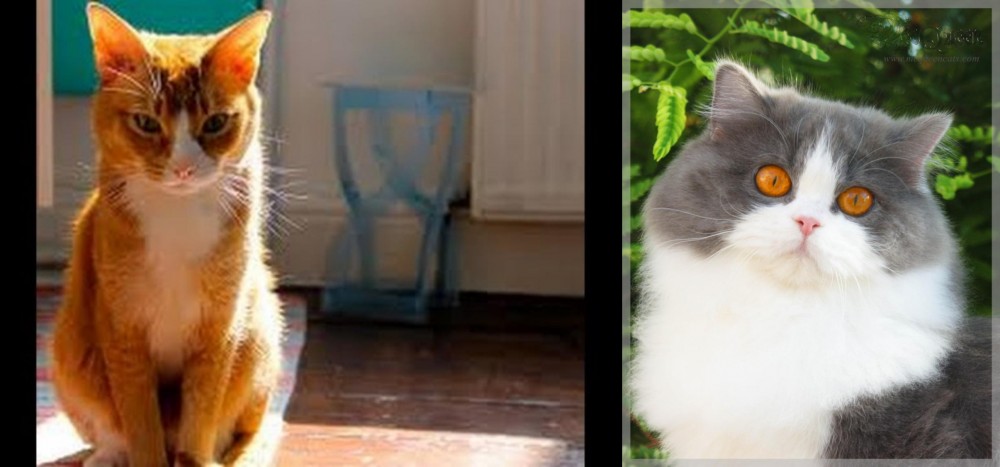 Chausie is originated from Egypt but British Longhair is originated from United Kingdom. Both Chausie and British Longhair are having almost same weight. Both Chausie and British Longhair has almost same life span. Both Chausie and British Longhair has same litter size. Chausie requires Low Maintenance. But British Longhair requires Moderate Maintenance
Chausie is originated from Egypt but British Longhair is originated from United Kingdom. Both Chausie and British Longhair are having almost same weight. Both Chausie and British Longhair has almost same life span. Both Chausie and British Longhair has same litter size. Chausie requires Low Maintenance. But British Longhair requires Moderate Maintenance
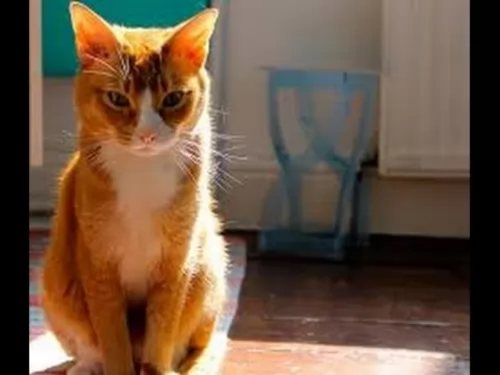 The Afro-Chausie came about from breeding a few individuals from a species of jungle cat which was native to India, Asia and the Middle East. In other words, this is a cross between a wild cat and a domesticated cat.
The Afro-Chausie came about from breeding a few individuals from a species of jungle cat which was native to India, Asia and the Middle East. In other words, this is a cross between a wild cat and a domesticated cat.
It was only in 1995 that the Chausie was recognized as a domestic breed, and by the International Cat Association.
The Chausie breed essentially began in the 1990s, when breeders name the breed Chausie and also developed a breeding program. They received registration status in 1995. Chausies are bred in North America and Europe and in 2003 became a new breed in the United States.
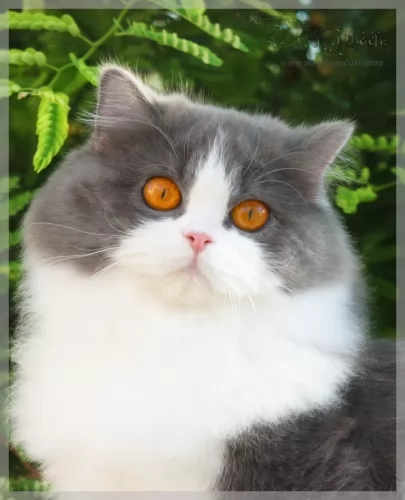 The British Longhair cat hails from Great Britain. The cat is a longer-haired variety of the British Shorthair.
The British Longhair cat hails from Great Britain. The cat is a longer-haired variety of the British Shorthair.
These British Shorthairs were interbred with imported long-haired varieties with the idea being to bring about a cat that was more compact and stout and with a rounder face. Today the British Longhair is an established longhair breed in its own right.
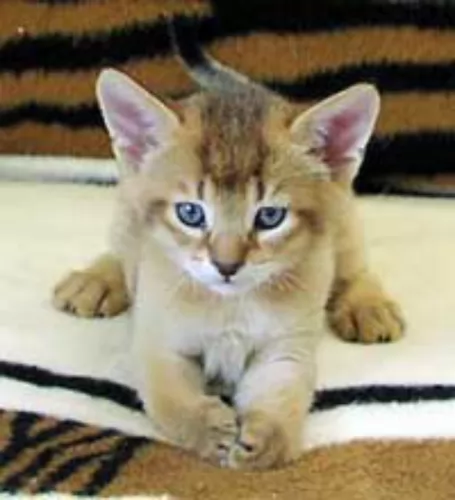 The Chausie is a medium to large cat with a long body and long legs. In fact, the hind legs are somewhat longer than their front legs, and they’re able to easily leap into the air and up onto high perches. Some people say these cats look like Pumas.
The Chausie is a medium to large cat with a long body and long legs. In fact, the hind legs are somewhat longer than their front legs, and they’re able to easily leap into the air and up onto high perches. Some people say these cats look like Pumas.
The adult Afro-Chausie can weigh between 5 to 9kg and they stand in height from 35cm to 45cm and sometimes taller, both male and female.
The ears of the cat are broad and tall and the almond-shaped eyes are a yellow to green shade. The TICA Chausie breed standard says that the cat comes in 3 colors – a black/brown ticked coats, solid black and black grizzled tabby, but in fact, they come in quite a few other colors and patterns too.
Your Afro-Chausie is an intelligent, loyal, social and athletic cat that is also playful. They love their human companions and will form a deep bond with them, making it difficult to rehome him later on.
They don’t like being alone, in fact to such an extent that they will befriend dogs in the home too. This is such an active cat and you can even train him to walk on a leash.
It’s a cat that also loves water and Similar to Bengals and Savannahs, this breed, too, enjoys water. This cat will form deep bonds with owners, hence rehoming has been known to be particularly challenging with this breed
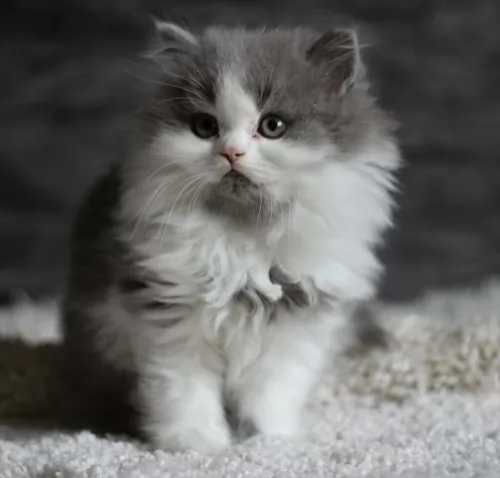 The beautiful British Longhair cat is a medium-sized feline, leaning towards being a large cat with semi-long hair.
The beautiful British Longhair cat is a medium-sized feline, leaning towards being a large cat with semi-long hair.
The cat, whether males or females can weigh between 4 and 8kg. It is robust and muscular with round paws and legs of medium length. The ears are smallish and round at the tips.
The color of the eyes can be different - browns, greens, blue, and grey. The colors of the coat can be blue, white, black, grey, calico, tabby, bi-color and tortoiseshell. The coat can be a solid color or it can be in different patterns. The fur is always medium length and silky with an undercoat.
The British Longhair has much the same personality as the British Shorthair – being calm, amicable cats who appreciate their human owners.
They’re adaptable cats too and are willing to get along with any other pets in the home as well. They’re playful and affectionate with their owners but don’t particularly like being held for too long.
Even though this is a docile cate, it is intelligent and will require mental stimulation. You’ll need to invest in a few ‘intelligent’ type of toys to keep your cat physically and mentally active. Take a look at the kinds of games where your cat will be required to ‘hunt’ for his food.
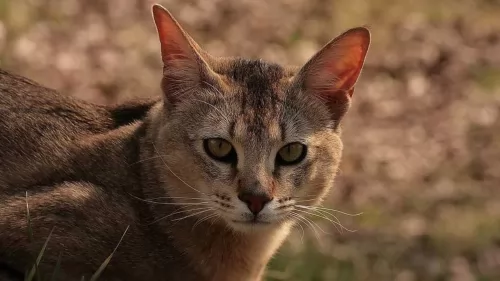 The Chausie loves human contact and they love games with their human family.
The Chausie loves human contact and they love games with their human family.
They’re intelligent and are constantly looking for things to do. They are athletic and have plenty of energy. They’re social, playful and make great playmates for children who have been taught to respect animals.
When you bring an Afro-Chausie into your home, you can expect to have a lot of action and entertainment with this beautiful cat.
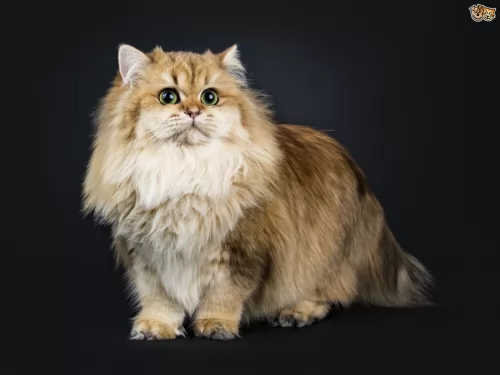 The British Longhair makes an awesome pet and can live happily with children, other dogs, and cats and all of his human family.
The British Longhair makes an awesome pet and can live happily with children, other dogs, and cats and all of his human family.
He isn’t a cat that wants to be picked up too often – he is independent but is willing and loving towards his humans.
For the friendship he offers, you’ll want to reward him for the joy he brings by providing well for him.
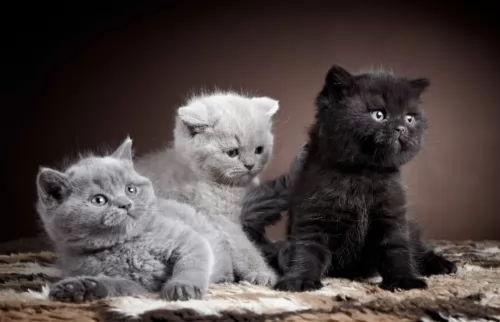 With good health, your Afro Chausie can live to be anything between 12 – 16 years of age. These cats are prone to developing food allergies, and this is why it is important to feed your Chausie high-quality food.
With good health, your Afro Chausie can live to be anything between 12 – 16 years of age. These cats are prone to developing food allergies, and this is why it is important to feed your Chausie high-quality food.
They’ve got fragile digestive systems and many are gluten intolerant.
All kinds of parasites can invade your Afro-Chausie’s body – internally and externally so be sure to have your Chausie checked over for parasites such as tick and fleas, worms and mites.
Check your Chausie for putting on too much weight as these cats have a huge appetite.
You just have to bear in mind that these cats can develop any of the illnesses that other domesticated cats get
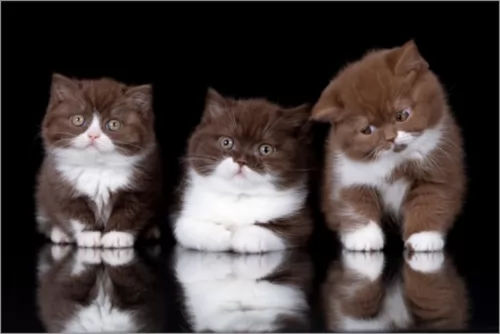 These beautiful cats can be prone to obesity if kept as an indoor cat only and a cat that doesn't get enough exercise.
These beautiful cats can be prone to obesity if kept as an indoor cat only and a cat that doesn't get enough exercise.
Obesity, an accumulation of excess body weight, is a preventable disease. It is necessary to prevent this obesity as it can reduce your pet’s life expectancy. Fat tissue is active, secreting inflammatory hormones and creating oxidative stress on the body’s tissue, and this is precisely what contributes to so many diseases.
The British Longhair cat can also be prone to renal polycystosis. This disease is where many pockets of fluid or cysts form in the kidney and if they grow large over time they can actually interfere with kidney function and this can bring on kidney failure.
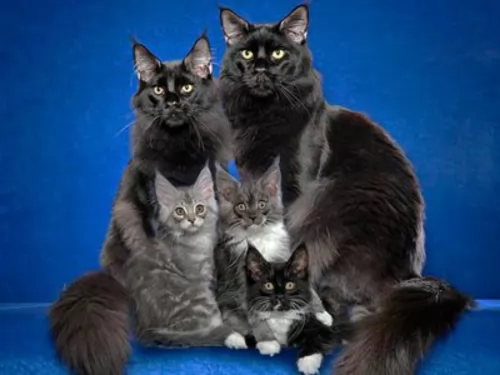 With their short coats, they only need to be brushed once a week as they are moderate shedders.
With their short coats, they only need to be brushed once a week as they are moderate shedders.
Provide your cat with a quiet place to sleep and which is comfortable and dry.
A cat tree can be useful for allowing your cat to climb and scratch.
Chausies are essentially meat-eaters. They don’t want to eat fruit and nuts. One of the Chausie’s ancestors was a wild cat and this is why they don’t eat the same foods as what your dog does.
Every cat thrives on a high-protein, low-carbohydrate diet. A dog’s diet with scraps from the table as well as human food can be fatal for your Chausie if it becomes your cat’s regular food.
He requires a diet of quality meat – beef, chicken, fish and organs – all foods that are easily digestible for your cat. Cats also need taurine from muscle meat such as shellfish and fish.
Always make sure your Chausie has access to a constant supply of fresh, cool water.
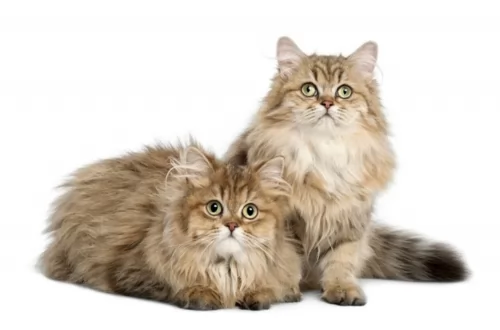 Because of the long hair, the British Longhair is going to require brushing as the coat can easily become matted, particularly as the coat thickens in preparation for winter.
Because of the long hair, the British Longhair is going to require brushing as the coat can easily become matted, particularly as the coat thickens in preparation for winter.
You’ll need to brush the hair once a week, but perhaps more in peak shedding times. A gentle but firm brushing keeps the cat’s fur and skin in good condition.
Have your pet spayed and neutered to avoid unwanted kittens.
Take your pet to the vet as soon as he is unwell. He is part of your family now and must be treated as such.
Provide your pet with human companionship especially if you buy one of the more social cats.
If your cat is an indoor pet, provide him with a litter box ad be prepared to clean it every day.
Provide a clean, dry, comfortable bed in a quiet area.
Provide your cat with stimulating toys.
Vaccinate your cat against the major feline diseases. Also, have your cat dewormed.
In terms of nutritional requirements, make sure that your British Longhair gets the very best cat food there is, whether you provide him with homemade food or you give him some of the excellent commercially manufactured cat foods there are.
There are wet- and dry foods and it's for your furry friend to decide which one he prefers.
Learn to read labels and make sure your cat is getting foods high in protein, after all, your cat is a carnivore.
Be sure that the food has lots of vitamins and minerals for his health. A cat also needs a constant supply of fresh, cool water.